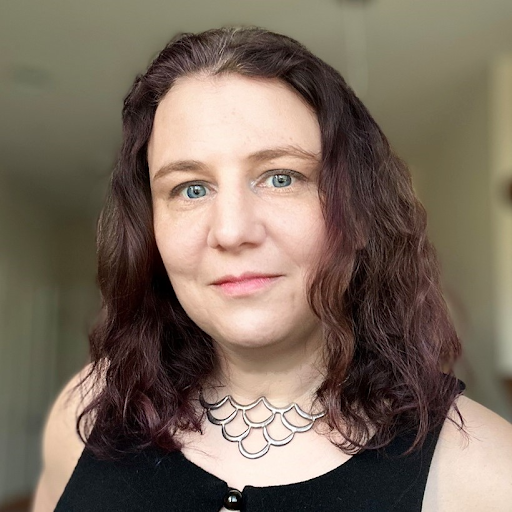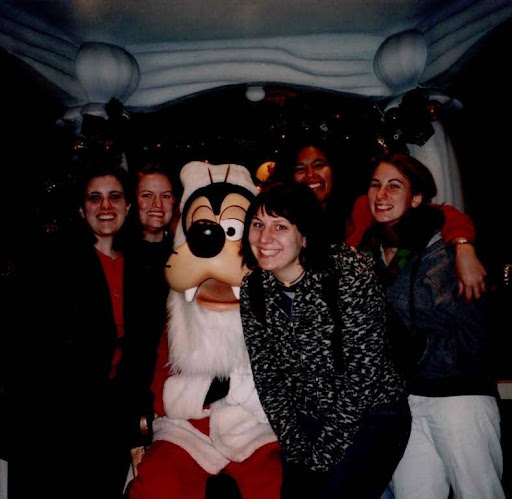Interview with PBS Alumni Council Member Susan Persky, Keynote Speaker at ENGAGE 2025
Susan Persky is the newest member of the PBS Alumni Council. Susan Persky is an associate investigator and head of the Health Communication and Behavior Unit. She also directs the Immersive Simulation Program (ISP) within the Social and Behavioral Research Branch (SBRB) at the National Human Genome Research Institute (NHGRI), National Institutes of Health (NIH). She earned a B.A. in psychology from Northwestern University and an M.A. and Ph.D. in social psychology from the University of California, Santa Barbara, where she studied at the Research Center for Virtual Environments and Behavior.

Inside Psychology interviewed Susan Persky to learn more about her work and her time at UCSB.
How would you characterize your path from UCSB to where you are now?
My path from UCSB to my present situation seems much more straightforward in hindsight than it felt at the time. It was paved with good fortune, privilege, and the support of several generous mentors and colleagues. At UCSB I trained under Dr. Jim Blascovich at the Research Center for Virtual Environments and Behavior (RECVEB) beginning in 2000. The integration of virtual reality (VR) technology with social/behavioral science was an almost entirely new concept then, and the research community was in its infancy. Because of this, I suddenly became a rare expert in an emerging field that would go on to expand exponentially years later.
Jim was incredibly supportive when I moved cross-country to NYC in my fourth year to join my partner and finish my doctorate remotely. He introduced me to Dr. Geraldine Downey at Columbia University, who welcomed me into her lab meetings. I ultimately spent a year working in Geraldine's lab before accepting a staff research position at the National Institutes of Health (NIH), my current research home.
At NIH, in the Social and Behavioral Research Branch of the National Human Genome Research Institute (NHGRI), my initial role was to establish and direct a VR-based research lab to enable innovative behavioral science experimentation in genomics. Over the years, I developed my own research program in behavioral science and genomics, later becoming a Principal Investigator in the Intramural Research Program at NHGRI in addition to directing the VR lab. Spending the past 20 years at NIH working on emerging technology in research and healthcare has been a bit of a whirlwind; in this field, change is the only real constant.
How did you come to be a graduate student in Psychology here at UCSB? What drove you to the topic of psychology, and eventually, to virtual reality and health?
I engaged in several psychology research assistantships as an undergraduate at Northwestern, quickly discovering that research appealed to me. I was also interested in technology and emerging work on internet-mediated communication. I decided to pursue social psychology, but few social psychologists were conducting research in this area in the late '90s. Instead, I relied on my undergraduate faculty mentors to help me identify schools with strong social cognition programs. UCSB wasn't initially on my radar as a midInterview to alumna Susan Persky, keynote speaker ENGAGE 2025westerner; however, my professors Drs. Galen Bodenhausen and Jeff Sherman (also a UCSB alum) gave it a very strong recommendation. During my admissions visit, I noted that the faculty felt exceptionally accessible and nurturing. Then I met Jim and toured his newly founded VR lab. Though it wasn’t what I'd envisioned initially, it definitely rhymed and felt like a unique opportunity. I took a leap and have never regretted it.
Tell us about your work in the Immersive Simulation Program and generally at the National Human Genome Research Institute (NHGRI). What are the questions you are working on right now, and can you trace the trajectory from UCSB to NHGRI?
I wear two primary hats in my role at NHGRI: head of the Health Communication & Behavior Unit and director of the Immersive Simulation Program. My work feels like a natural extension of my education and background, applying psychological science and methods to understand and inform evidence-based approaches for implementation of VR and genomics (sometimes in tandem).
My primary area of substantive research investigates individuals' mental models of how genetics and genomics contributes to development of traits and health risks in conjunction with environmental and behavioral factors, and how these models influence outcomes like health decision-making, stigma, and health-promoting behaviors.
In the Immersive Simulation Program I guide and support colleagues integrating immersive and other technologies into their research programs, conduct research that improves the capabilities of VR as a research and clinical practice tool, and contribute to broader efforts aimed at developing, evaluating, and implementing VR-based therapeutics and health-promotion applications. It's a lot, but I enjoy the ability to move between radically different topics and projects in the course of a single day.
During your time as a graduate student, were there particular courses, faculty mentors, or lab experiences that most shaped your thinking and career trajectory? Can you share which ones and why they were so influential?
There is very little about my time at UCSB that wasn't influential on my thinking and career. Dr. Brenda Major's stigma class and my final paper on weight stigma sparked my interest and set the stage for my health stigma work today. Through coursework with Jim and Dr. Nancy Collins, I also learned a tremendous amount about rigorous methods, validation, and evaluation which I apply every day. I’m grateful to have had such a strong foundation in research methods.
Any advice for Gaucho PBS majors and graduate students?
I sometimes joke that my research fits squarely within eight different disciplines, and I think that's a direct result of collaborating with colleagues from very diverse scientific and practice backgrounds on applied and translational projects. Team-based research aimed at solving complex problems or achieving real-world impact can be especially motivating and enjoyable.
I suggest seeking out exposure to these types of projects with investigators who bring different skillsets, approaches, and perspectives to the table. This has really expanded my thinking both in and outside of the lab.

From left to right: Ana Marie Guichard, Elsa Ermer, Goofy, Susan Persky, Brooke Vick, Kristi Costabile.


